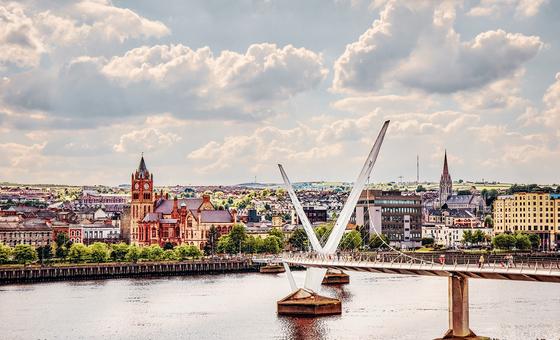The United Kingdom’s plans to offer limited immunity from prosecution to those accused of crimes during Northern Ireland’s “Troubles” have been called into question by UN rights chief Volker Türk.
The High Commissioner for Human Rights acknowledged on Thursday that addressing the violent legacy of intercommunal relations in Northern Ireland from the 1960s to the 1990s was “hugely complex and sensitive”.
‘Conditional immunity’
But he warned against plans to give conditional immunity from investigation and prosecution to those accused of serious human rights violations and other international crimes, other than sexual offences.
Such an amendment to the Northern Ireland Troubles (Legacy and Reconciliation) Bill would be incompatible with the UK’s international human rights obligations, which calls for accountability, Mr. Türk explained.
There are also concerns about whether the Independent Commission for Reconciliation and Information Recovery, which the Bill would establish, would be able to work independently and undertake human rights-compliant reviews and investigations.
Justice essential
In an appeal for the rights of victims, survivors and their families to be respected, the High Commissioner (OHCHR) insisted that their search for justice and reparations were “essential for reconciliation”.
The draft Bill risked obstructing these rights, he said, also noting that the text had only been made public one week before it was due to be examined in the Upper House of Parliament, the House of Lords.
“This gives the public and relevant stakeholders, including victims and survivors, insufficient time to scrutinize the amendments and participate meaningfully in this hugely significant legislative process,” the High Commissioner said.
Obstruction risk
“Concerns remain that the Bill would obstruct the rights of victims, survivors and their families to effective judicial remedy and reparations, including by prohibiting most criminal prosecutions and civil actions for Troubles-related offences,” he added.
The Bill is set for further review at the House of Lords committee stage on 24 and 31 January.
The OHCHR chief urged the UK to “reconsider its approach and engage in further meaningful and inclusive consultations on how best to advance a human rights-centred way to address the legacy of the Troubles”.

